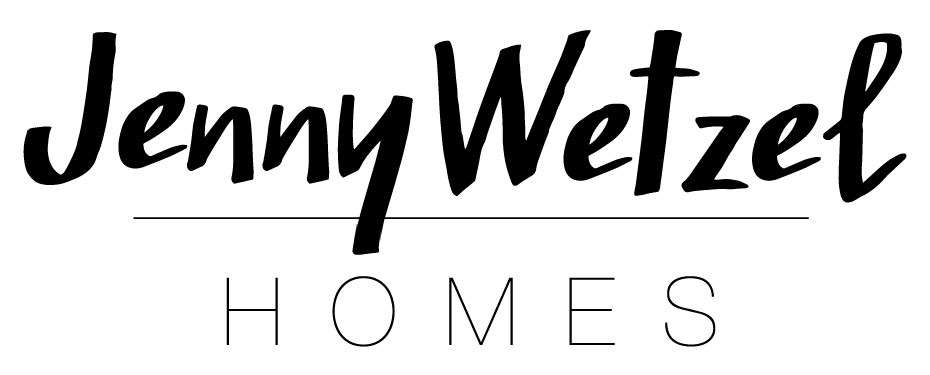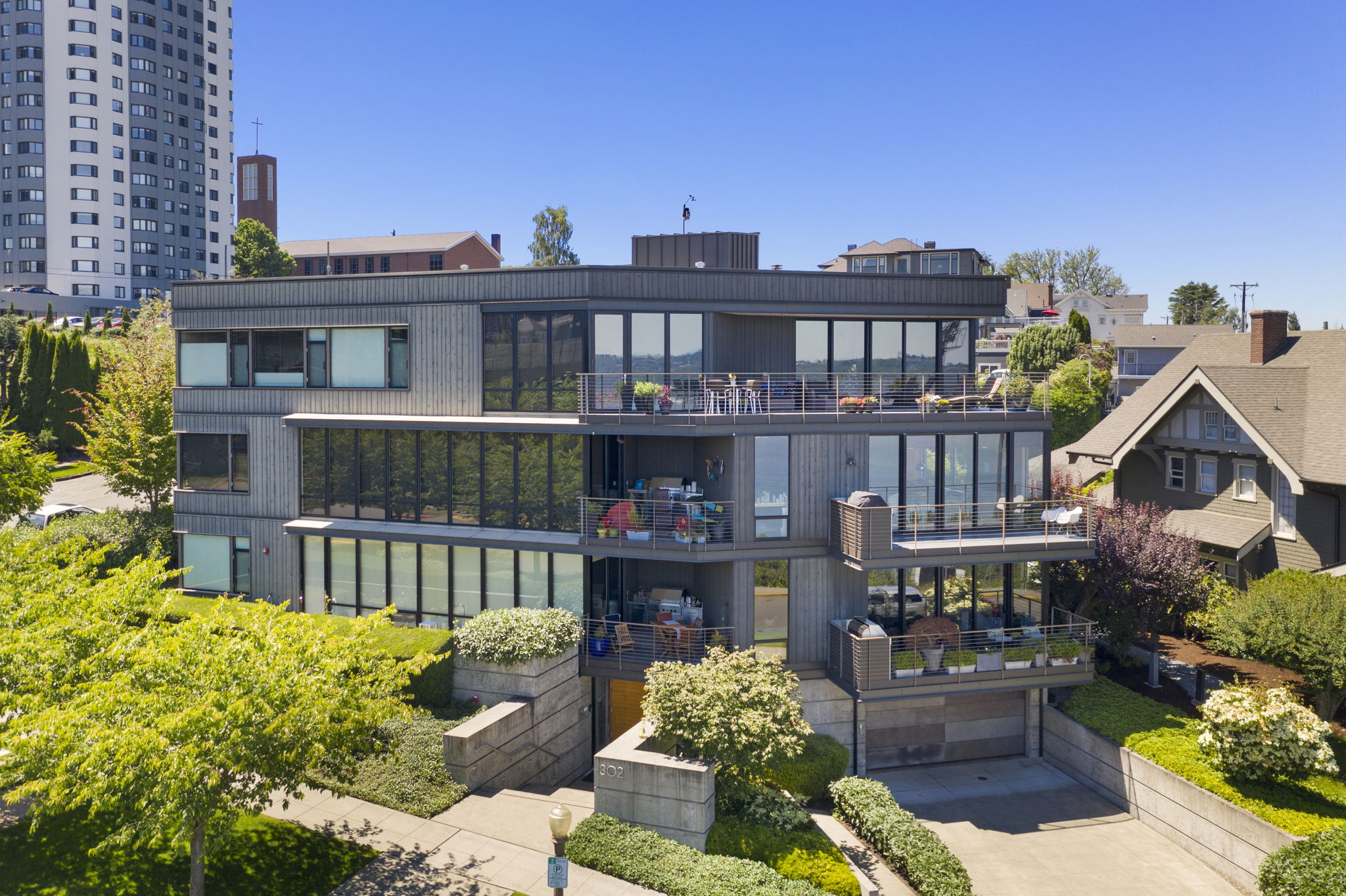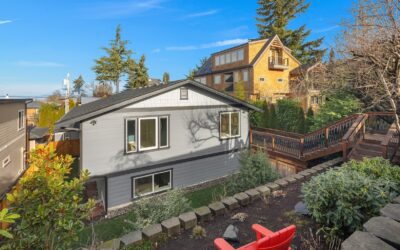Buying a condo in Tacoma looks quite a bit different than purchasing a Single-Family Residence (SFR) in Tacoma. We’ll outline the differences and highlight what you should know before purchasing a condo in Tacoma and the surrounding area. Buying a condo in Tacoma isn’t for everyone! After reading this blog you’ll know if owning a condominium in Tacoma is the right fit for you.
Here are some condominium buildings in Tacoma. We’re working on adding to this playlist to give you more condos to familiarize yourself before we begin touring in person!
Owning a condominium provides the luxury of not having to manage a yard or maintain the exterior of your home. These two items are typically managed and paid for by the Homeowner Association (HOA). Some condominium buildings in Tacoma have built-in community features for residents to enjoy. These amenities can include a pool, courtyard, workout room, rooftop deck and mini golf, to name just a few.
Condominium communities offer residents opportunities to gather socially at planned events within the building. Think book clubs, holiday gatherings, group workouts and more. As a resident and owner, you’ll have more opportunities to be engaged with your neighbors, HOA board and condo association at large. Many of these social gatherings happen in the condominium building. If you prefer to spend your time socializing, playing or being apart of the HOA board and you won’t miss having a private yard, buying a condo in Tacoma could be an amazing move for you!
Now that we’ve laid the groundwork, let’s dive into some specific items to review when assessing where to buy.
Things to look for in the Homeowner Association (HOA) Documents:
- Rules and Regulations
- Total amount of reserves
- Meeting Minutes
- Limitations on Rentals
- Financing requirements
1. Rules and Regulations
Everything you need to know about the Condominium is laid out in the Rules and Regulations section. All of the “make-or-break” features like parking, extra storage and pets will be presented for you, here. In addition, all other rules like visitor access, door or deck decor, mail room etiquette will be in this section of the documents.
Depending on the condo building, the rules and regulations can vary from very strict rules to a more relaxed environment. It’s important to read all of the fine print when reviewing the rules and regulations.
2. Amount of Reserves
Do not overlook this! The condo reserves refers to the amount of money the HOA or Condo Association has available. The reserves are used to fund projects, events, or improvements to the building. From touching up chipped paint to installing a brand new roof, the reserves are what’s used to pay for these type of maintenance costs and upgrades.
For example, if the building needs a new roof but the HOA reserves are insufficient to cover the entire project, what happens? In this scenario, a “special assessment” may take place. Meaning the owners will be charged more in HOA dues monthly or may be required to pay a lump sum to help fund the project(s) necessary.
The buildings size and age matters! Larger condominiums have more of a “buffer” (typically) when it comes to the available reserves. There’s a larger pool of owners paying into the dues, which is arguably less risky. Smaller or boutique buildings have less people paying into the association dues and less room for error. Any well managed building can have an adequate amount of funds.
3. Meeting Minutes
The meeting minutes provide everything that’s been discussed in HOA meetings for the past few years. Typically, at least two years of meeting minutes will be provided to you. If a special assessment is on the docket, you’ll see this discussed in the meeting minutes. Projects, problems and complaints from condo owners will also be included. Need clarification on a topic discussed in the meeting? This is a good time to call up the HOA manager or president to get more clarity.
4. Restrictions on Rentals
If you are purchasing a condo as an investment property (non-owner occupied) or plan to rent it in the future, you’ll want to see if the condo building has rental restrictions. You will see what the rental restrictions for the building are in the HOA documentation.
Some condominiums do not allow any rentals of any kind, while others restrict only short-term rentals. It is a rarity to find a condominium building that allows short term rentals, so if you are planning to make your condo a VRBO or AirBnB think twice about your long term plan! If the building does allow rental units, there is typically a cap for how many units can be rented at any given time.
5. Financing Requirements
Alas! How do you finance a condominium purchase? Fortunately, condos require the same type of financing as a SFR purchase with a few nuances, which we’ll explain here.
Conventional financing and cash are the gold standard when it comes to purchasing a condo in Tacoma. Many buildings will accept FHA and VA financing. However, the building must go through an approval process and if the condo building has not gone through that certification, homebuyers are limited using conventional loans or cash. Small condo buildings are less apt to accept FHA and VA financing because the building has to pay to go through the certification and pay an annual fee to allow those types of financing. Read this blog to learn how to finance your home purchase.




